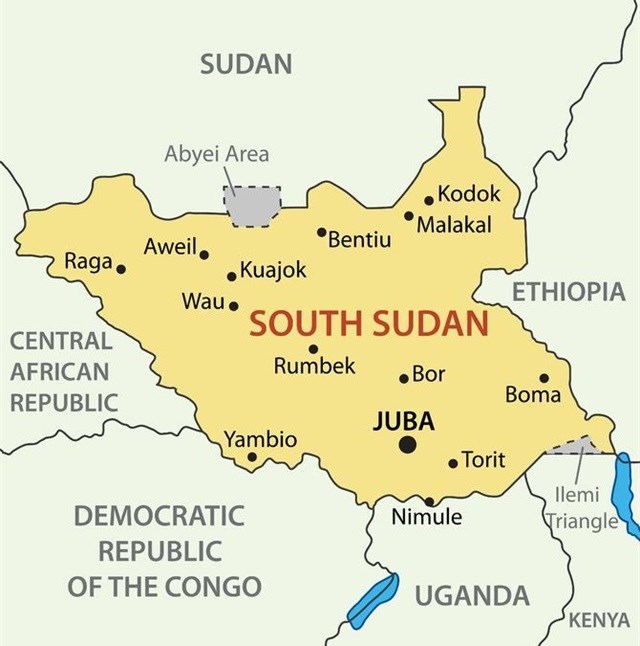Humanitarian response eases famine in South Sudan

Following the famine declaration, humanitarian organisations ramped-up their response in Leer, Mayendit, Koch and Panyinjiar, reaching more than 320,000 people, according to the Humanitarian Coordinator for South Sudan, Eugene Owusu, who welcomed the findings of the latest Integrated Phase Classification (IPC) data.
“I applaud the humanitarian community for the rapid scale-up of humanitarian response in famine-affected and at-risk areas in Unity,” said Owusu. “We deployed teams to dangerous and difficult locations and faced many challenges along the way, including clashes which forced us to relocate aid workers and delay distributions. But we were not dissuaded, and our collective efforts ultimately prevented the catastrophe from escalating.”
The Humanitarian Coordinator, however, urged the international community and humanitarian actors not to become complacent, as an unprecedented 6 million people are now severely food insecure, including 45,000 facing catastrophic food insecurity in Leer, Koch and Mayendit in Unity, and Ayod in Jonglei, and 1.7 million in IPC Phase 4, on the brink of famine.
“Half of the people across this country are severely food insecure, we are facing the longest and most widespread cholera outbreak since South Sudan became independent, and the number of people internally displaced has topped 2 million,” warned Owusu. “These are the devastating consequences of conflict, which has taken a daily toll on the desperate civilians of this nation.”
Rapid response missions were carried out in at least 17 locations, and humanitarian organisations delivered vital and life-saving services, including food, emergency healthcare, vaccinations, nutritional treatments, seeds and tools for livelihoods, clean water, and critical non-food items, such as blankets, kitchen sets and mosquito nets. Each of these interventions played a critical role in halting and preventing famine.
“Despite the good news today that we have arrested the localised famine in Leer and Mayendit, we face greater needs in South Sudan than ever before,” said Owusu. “This is the time to redouble our efforts and expand our response. To do this, we urgently need free, safe and unhindered humanitarian access, and funding to respond to the escalating crisis. I call on all parties to the conflict to cease attacks against civilians, and to uphold their responsibilities under international humanitarian law. Until the violence stops, humanitarian needs will continue to grow.”
Source: African Press Organisation

APO is the sole press release wire in Africa, and the global leader in media relations related to Africa. With headquarters in Dakar, Senegal, APO owns a media database of over 150,000 contacts and the main Africa-related news online community.
Go to: www.bizcommunity.com/PressOffice.aspx?cn=apogroup





